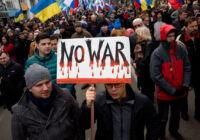Fair Observer’s five best articles of August.
In large parts of the northern hemisphere, August is a month of humidity and heat. When it comes to developments this month, there has been no dearth of the latter.
The Syrian saga carries on like a tragic and bloody melodrama. The Bashar al-Assad regime is suspected of orchestrating chemical attacks in contravention of international law. UN Inspectors have been fired upon and the British Parliament has bucked its prime minister to vote against military action. The US is likely to take a more hard-line stance but the situation in Syria is messy.
The benefits of military action are likely to be hardline Salafists so the choices for the world’s superpower are navigating between Scylla and Charybdis. Add Iranian, Chinese and Russian support for Assad, and what you have is Gordian knot that is unlikely to be untangled. The people who will suffer most are ordinary Syrians. The Middle East will bear the repercussions of a war that has already crossed international boundaries. We might well be living in a time when the Sykes-Picot Agreement, stitched up before World War I, might be unraveling.
August is a month when India and Pakistan celebrated the 66th anniversary of their independence. It was also the anniversary of the partition of the country effected brutally by the callousness of Cyril Radcliffe, who had never visited the country before he drew the arbitrary lines dividing original India into India and Pakistan.
The Pakistan of 1947 incongruously included modern day Bangladesh, comprising a people linguistically and culturally different from the ruling elite and geographically separated by the giant nation state of India. The imperial British premise to divide India on the basis of religion and the audacity to assume that all Muslims comprised of one nation, was irrational at best and inhuman at worst. It led to the biggest human migration in history and the slaughter of many millions. The strife in the subcontinent owes a great deal to decades of the British policy to “divide and rule.” The Pakistan of 1947 unraveled by 1971 when Bangladesh was formed after a bloody India-Pakistan war.
Pakistan has never recovered from that trauma and its support for the Taliban in the 1990s was a strategy to develop strategic depth in Afghanistan against its larger eastern neighbor. As Syria disintegrates, Pakistan and even India are dealing with a “million mutinies” with different ethnicities tugging at the yoke of a centralized government that is a legacy of the British Raj.
In Africa, the strongman Robert Mugabe has been reelected and Hosni Mubarak has been released from prison. The former has led Zimbabwe to devastation, squandering the initial promise that Africa’s bread basket showed in the immediate aftermath of its independence. Today, Mugabe is an embarrassment to Africa, a classic example of an authoritarian leader who refuses to relinquish power and develop institutions that foster the democratization of his country.
Zimbabwe is deeply divided along tribal lines with the Shona mainly in his camp and the Ndebele in the opposition. The redistribution of land from white farmers has been done without any rule of law and the beneficiaries of the process have been thugs loyal to the ruling regime.
Mubarak’s release is symptomatic of the fact that “Mubarakism” has staged a comeback in Egypt. The Muslim Brotherhood certainly did not cover itself in glory during its time in office, but the best way to get rid of them would have been through the ballot box. The coup has given a chance for the old elites to slip back into authority once the crowds at Tahrir Square have dissipated.
On a more optimistic note, August marked the 50th anniversary of Martin Luther King Jr’s March on Washington and the “I have a Dream” speech. Today, America has an African-American president. Its democracy is more diverse and, while race still continues to be a factor in politics, segregation seems a distant memory. So distant that CNN’s top story for the day was on Miley Cyrus, an American entertainment celebrity.
Yet at a time of historic inequality — especially wealth inequality — it would be presumptuous to say that race in the US is a distant memory. African-Americans continue to be disproportionately among the worst off sections of American society. The Travyon Martin case brought into focus the racism, incarceration and violence that African-Americans face on a daily basis, but the country is willing to confront these issues much more openly than in the past.
Finally, we would like to draw your attention to the issue of sex workers and human trafficking that remains a global phenomenon. We produced a 360° Analysis to highlight this issue and commence a discourse as to how we tackle this old problem in our age.
We would also like to draw your attention to the fact that to focus on such in-depth analysis of bold issues with independence and integrity, we need resources. To provide a home to all narratives, nationalities and ideologies, we need your moral and financial support. Please back us by pledging on the crowd funding platform, Kickstarter, and by asking your friends to do so. We exist to serve you and thank you for your support.
1: Stockholm Syndrome and Sex Trafficking: Why Don’t They Do Something? — by Shirley Jülich
Shirley Jülich explains the complexity of the Stockholm Syndrome in sex abuse victims.
2: International Jihad and the Syrian Conflict — by Nicholas A. Heras and Aaron Y. Zelin
Nicholas A. Heras speaks to Aaron Y. Zelin about the Syrian Civil War and foreign jihadi fighters.
3: West Papua is Indonesia’s Palestine — by Jason MacLeod
West Papua is becoming an international problem for the Indonesian government.
4: The Indian Army’s Role in Nation Building — by Nitin A. Gokhale
India’s army has seen its role as the nation’s “ultimate weapon” diminish.
5: How To Be a Rogue Superpower in the 21st Century — by Tom Engelhardt
Has Snowden inadvertently unmasked the world’s real rogue power?
Image: Copyright © Shutterstock. All Rights Reserved
Support Fair Observer
We rely on your support for our independence, diversity and quality.
For more than 10 years, Fair Observer has been free, fair and independent. No billionaire owns us, no advertisers control us. We are a reader-supported nonprofit. Unlike many other publications, we keep our content free for readers regardless of where they live or whether they can afford to pay. We have no paywalls and no ads.
In the post-truth era of fake news, echo chambers and filter bubbles, we publish a plurality of perspectives from around the world. Anyone can publish with us, but everyone goes through a rigorous editorial process. So, you get fact-checked, well-reasoned content instead of noise.
We publish 2,500+ voices from 90+ countries. We also conduct education and training programs
on subjects ranging from digital media and journalism to writing and critical thinking. This
doesn’t come cheap. Servers, editors, trainers and web developers cost
money.
Please consider supporting us on a regular basis as a recurring donor or a
sustaining member.
Will you support FO’s journalism?
We rely on your support for our independence, diversity and quality.






Comment